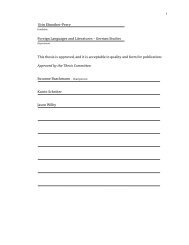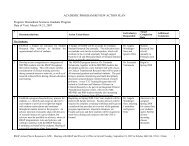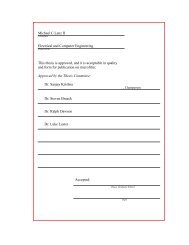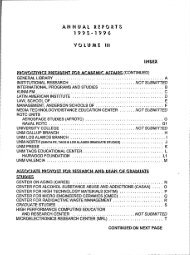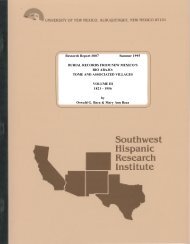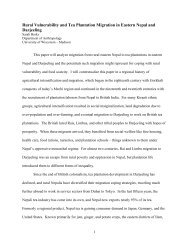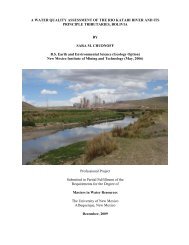i Jeffrey L. Engbers Health Exercise and Sports Science This ...
i Jeffrey L. Engbers Health Exercise and Sports Science This ...
i Jeffrey L. Engbers Health Exercise and Sports Science This ...
You also want an ePaper? Increase the reach of your titles
YUMPU automatically turns print PDFs into web optimized ePapers that Google loves.
the typical classroom will further develop student-athletes into contributing members of<br />
society (Dixon, Turner, Pastore, & Mahony, 2003).<br />
The positive aspects of intercollegiate athletics are seen in the benefit to the<br />
student-athlete. Athletics at Division I <strong>and</strong> II institutions provide opportunities through<br />
athletic-based scholarships for gifted athletes, allowing disadvantaged youth an<br />
opportunity to obtain a college degree (Denhart, Villwock, & Vedder, 2009). Dr. Myles<br />
Br<strong>and</strong>, the late president of the NCAA, believed that athletes benefit from intercollegiate<br />
athletics because participation in athletics teaches positive values like pursuit of<br />
excellence, perseverance, resilience, hard work, respect for others, sportsmanship,<br />
civility, <strong>and</strong> the integrity to lose – <strong>and</strong> win – with grace (Br<strong>and</strong>, 2006). Br<strong>and</strong> also<br />
claimed that athletics provides redeeming values to student-athletes that contribute to<br />
their goals <strong>and</strong> perspectives on life (Br<strong>and</strong>, 2006). Henderson et al., (2005) suggests that<br />
athletes make more money upon graduating than non-athletes in some disciplines.<br />
Athletics has also been shown to develop character in student-athletes (Denhard et al.,<br />
2009).<br />
Simon (2008) found it is possible that athletics can build critical thinking<br />
skills. Athletics done the ‘right way’ has the potential to provide learning outside of the<br />
classroom <strong>and</strong> contribute positively to the overall college experience (Tobin, 2005). As<br />
much as 70% of what students learn in college will occur outside of the classroom<br />
(Wilson, 1966, as cited in Kuh, 1993). Similar research by Moffatt (1988) shows that for<br />
about 40% of students, learning outside of the classroom was the most significant in their<br />
educational experience. At the Division III level, 97% of campus leaders agreed or<br />
20





